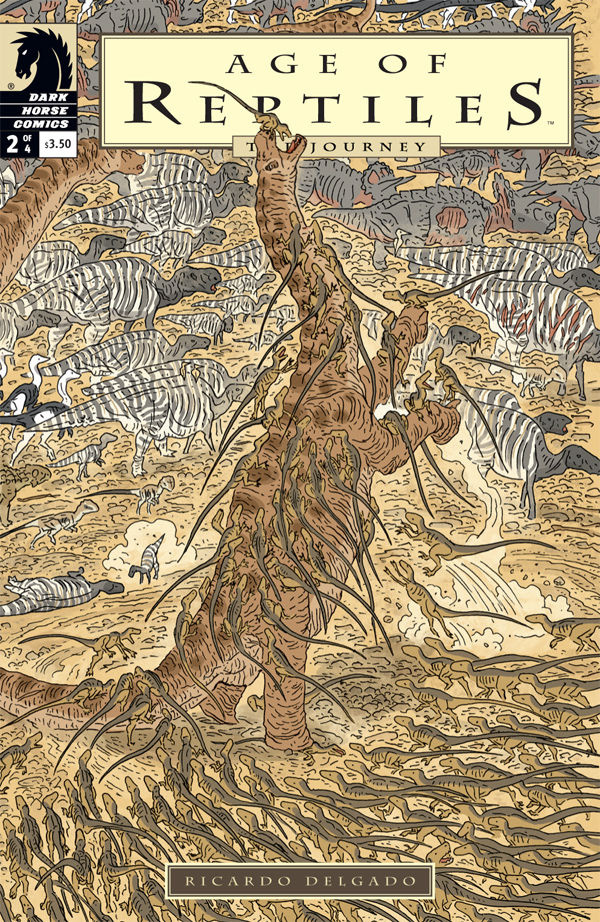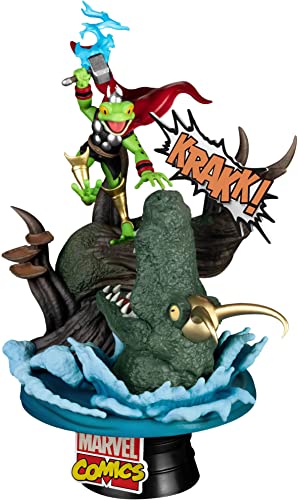Not necessarily true. I've seen a Labrador Retriever that hadn't eaten nor had anything to drink for 4 days, barely able to stand let alone prop up its own head, lash out ferociously when we attempted to simply restrain it for an impending euthanasia. You'd be surprised the strength that dying animals can find , cognizant of their weakened and vulnerable state, when they see adversarial creatures which they believe are seeking to hurt them or deprive them of their lives.
Several of the herd members are bleating in alarm or staring in awestruck horror at the sauropod. However,
all of the herd members are moving away from the scene of carnage. The fallen hadrosaur could well have been attempting to flee, stumbled, and simply did not have the strength to stand again. It's rare that the offspring of large herbivores venture far ahead of the parents, and in that picture the juvenile is moving backward, leading one to believe that the adult fell suddenly and unexpectedly. That seems more likely than it being sickly, causing the carnivores to avoid the fouled body. Though both are possibilities, I suppose.
Delgado was recently interviewed and said that this particular story will have "layers upon layers" of storytelling, all done with imagery and devoid of dialogue. There is such a readily apparent glut of fauna packed into each page, so very much detail packed in.
"It looks very, very simple and straightforward but if you look close there's a lot going on underneath the surface.” He wants the reader to "fill in the blanks", as he puts it. He lays the groundwork for the storytelling, and we as the readers put the pieces together.
Each frame is very carefully rendered, and that hadrosaur is lying there prone because Delgado put it there, a side story in the background, building the scene around the central element of the attack. Will it remain untouched in the moments to come? Probably not, but for the moment the raptors are all so caught up in hitting that enormous buffet, that they aren't interested in looking at the rest the menu.

The rest of the pack is cooperating to take on this large creature and render a bountiful meal, so for just one animal to break away and tackle a newly-fallen hadrosaur, even in a weakened state, is arguably just as dangerous if not more so. This scene reminds me of when a band of lions will cooperate to take down an adult elephant; not a frequent occurrence by any means, but in times of drought it's more common than one might suspect. A big animal in a weakened state can send appetites raging.
 This tale, from what I've been hearing, endeavors to adhere to creatures specifically from the places and time period of concern.
This tale, from what I've been hearing, endeavors to adhere to creatures specifically from the places and time period of concern.















